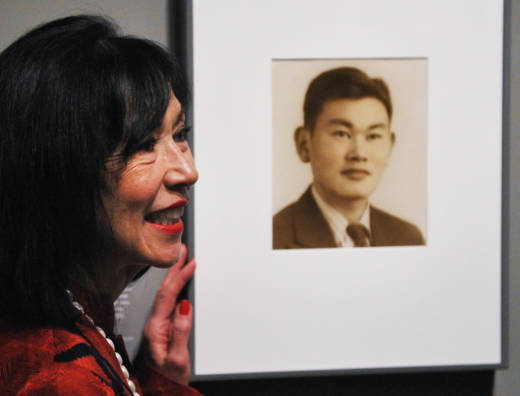Korematsu's effort — along with grassroots organizing from Japanese Americans across the country — ultimately led to the Congress adopting the Civil Liberties Act of 1988, apologizing to Japanese Americans for internment and granting reparations.
U.S. Rep. Barbara Lee, D-Oakland, noted that long journey at a virtual event hosted by the Fred T. Korematsu Institute on Saturday.
"He never gave up the fight for civil rights," Lee noted. "His story is such a reminder of the power of standing up for what is right and refusing to accept state-sanctioned racism."
Lee said Korematsu's struggle bore resemblance to the famed Rosa Parks. He struck Lee as humble, however, when she first met him.
His legacy also lives on through the Fred T. Korematsu Institute, helmed by his daughter, Karen Korematsu. She has been working for 10 years to see the nation formally recognize her father, and the holiday is now celebrated in Hawaii, Virginia, Florida and Michigan.
The institute has also distributed education toolkits on Japanese American internment and Korematsu's story to more than 12,000 educators and more than 1 million students across the United States, according to the institute.
Tony Thurmond, the California state superintendent of public instruction, praised Korematsu's story and its influence on students. Thurmond also drew parallels between the internment of Japanese Americans and the ongoing racial struggles of today, because the United States still hasn't let go of its racist past.
"We continue to see so many challenges around racism and police brutality against African Americans and others, we see acts of hate all throughout our Capitol, white supremacists bringing violence into the Capitol and attempting to overthrow our government," Thurmond said. "That's why we have to do like Congressman John Lewis said and get in a good kind of trouble, and to celebrate Fred Korematsu."
Jan. 30 was the late activist's birthday. In a virtual event on Saturday, his daughter Karen Korematsu said his message lives on.
"What I'd like to say on this special day is, 'Happy birthday, daddy.' He would've been 102 years old. His legacy continues to grow and to inspire," she said. "One person can make a difference, and so can you."
